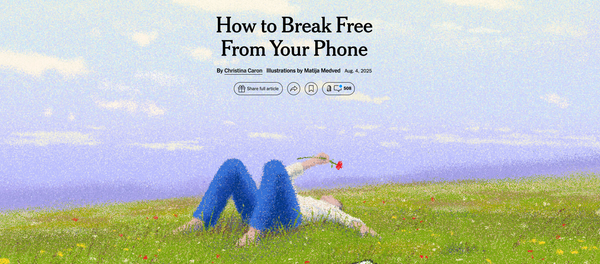Course Read-Along: A thesis for Adapting Christian Formation
Introducing a weekly peek into my seminary Christian ed class

Hi friends! I'm back from Germany and feeling re-energized for the semester and for this newsletter. Stay tuned for photos and learning reflections from our family trip to the Mutterland.
**
As I mentioned before I left, I'm gearing up for another iteration of my CDSP course Adapting Christian Formation. And I'm thinking about how this newsletter can come alongside that course in helping me actualize an idea that's been suck in my head since early 2020.
When my predecessor, the brilliant and wise Susanna Singer, handed off to me the Christian education real estate in CDSP's MDiv curriculum, she said in passing something I have never forgotten:
There's no obvious textbook for this course. I wish I had written one while I was teaching it.
In some ways, A (Christian) Formation Playbook is the book I'd like to write while producing a newsletter and podcast of same name. But in other ways, it's the book I started conceptualizing as I was deciding what a Kyle Oliver-taught course in Christian formation should look like.
So I'm going to write my way through the course as I teach it across first and third quarter this academic year. Watch for weekly posts where I zoom in on a big idea my students and I are preparing to grapple with.
**
To help set this series up, this week I'll share what is basically my "thesis statement" for the course, and unpack a few of the concepts that are essential to this take.
Here are a few notes about how I've framed things in my little thesis statement above:
"Religious education / faith formation / catechesis / spiritual formation" – We actually do a whole week in the course on how the terms we use for this enterprise both do and do not matter. More soon.
schooling-model – The ways Sunday school looks like K-12 school: age-segregated, curriculum-driven, often led by professional teachers, etc.
mostly at-church, Sunday-centric – Especially significant because evidence suggests what happens at home is much more important than what happens at church when it comes to the persistence of faith beyond adolescence
instructionist – To quote Seymour Papert, "the theory that says, "To get better education, we must improve instruction" (as opposed to constructionist: "Giving [learners] good things to do so that they can learn by doing much better than they could before")
**
If you're at all plugged in to formation leadership circles, much of this take should evoke a great big "duh." In the Year of our Lord 2024, we're already more than a decade removed from Day Smith Pritchartt's "Shutting Down the Sunday School"—and we're approaching the 50th anniversary of the publication of Westerhoff's critique in Will Our Children Have Faith? (from "Beginnings" section in chapter 1) :
by the late 40s and 50s ... [r]eligious education changed its name to Christian education, but the image of the church school and religious instruction remained intact. Large educational plants modeled after modern public school architecture and equipped with the latest in educational technology were built wherever economically feasible. More professionals were hired by local churches to direct these burgeoning educational institutions attached to local churches, and denominational curriculum resources erupted as big business.
During the 60s a few significant voices spoke out for a broader understanding of Christian education ... They boldly attempted to make the case that effective programs of Christian education needed to be planned in the light of the total mission and ministry of the church. They acknowledged that the church teaches most significantly through nurture in a worshiping, witnessing community of faith, and they clearly explained that explicit instruction in the church schools was only a small part of Christian education. Nevertheless, even they placed special emphasis on the church school and on instruction; few heard their call for a broader perspective.
Still, you wouldn't know it from the persistence of Sunday schools—or at least Sunday school envy. If we're turning a page on this era, it's usually because our resources and attendance numbers will no longer support it.
I hope over the course of this series I can convince you, if you're not convinced already, that the need to develop new models represents an exciting and creative opportunity for Christian formation leaders, especially if we can learn to let go of the expectations of the past and try out new practices in conversation with what our people want and need today.



